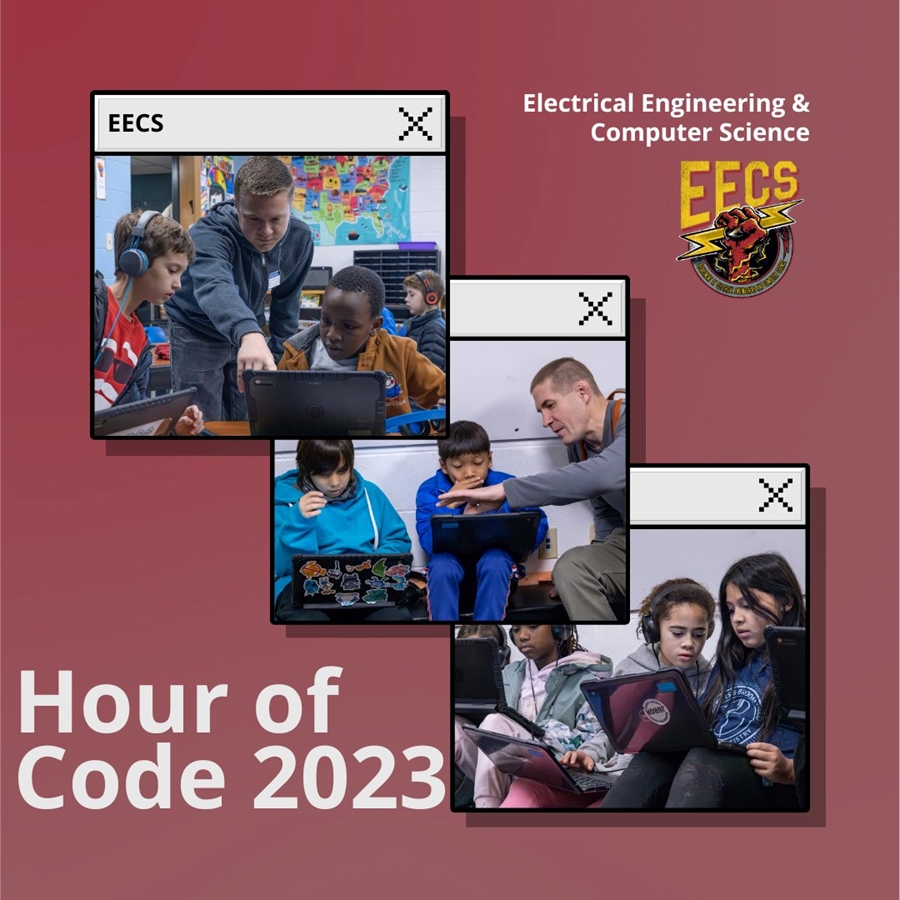Students from the Department of Electrical Engineering and Computer Science recently worked with multiple elementary schools to help get children into coding with the Hour of Code event. The Hour of Code is a nationwide annual event in which kids learn about coding through simple games and activities on computers.
Andrew Amidei, a computer science major, shared his experience volunteering at the Hour of Code. "It was very interesting to me, just the idea of getting kids to learn about coding and learning the foundations of coding through block coding or even type coding. It was really fascinating to know that they're doing it at this age at an elementary-level school." Amidei said the earliest he started with code was in a class in high school. "I would definitely say that this was a fun activity. It was great to have the experience and to see the level that these kids were already at," Amidei said.
Matthew Patitz, an assocate professor from the EECS department who organized the department's participation, said, "The first motivation is related to helping elementary school kids. The second motivation is related to helping the EECS students. This is an excellent opportunity to take the more complex concepts they've learned related to programming and learn how to explain them in greatly simplified terms."
Patitz said it is important to convey programming logic in abstract, simplified terms, asserting that this not only helps elementary school kids but also enhances the understanding of EECS students. "Furthermore, it's quite a bit of fun to interact with the kids," he added, emphasizing the mutual enjoyment derived from the experience.
Discussing the broader impact of Hour of Code activities, Patitz said, "What I think is most valuable about the Hour of Code activities is that all kids, boys and girls from every background, get a chance to be exposed to the basic principles of programming and structured logical thought."
Patitz said, "Every year, I have multiple college students tell me that they had great fun with it and ask if they can help with extra sessions or if there are other similar activities to volunteer for." He recounted instances where the Hour of Code inspired students to pursue teaching and underlined his commitment to expanding such initiatives.
"I've helped organize Hour of Code activities for nine years and involved five schools, and I certainly plan to continue doing so and to grow it even larger, if possible," Patitz said. Patitz said he has also made additional efforts, including collaborations with the Mathematics Department, to organize math and programming clubs as well as workshops for high school students.
You can learn more about the Hour of Code and how to take part by going to their website.
Topics
Contacts
Austin Cook, project/program specialist
Electrical Engineering and Computer Science
479-575-7120,
